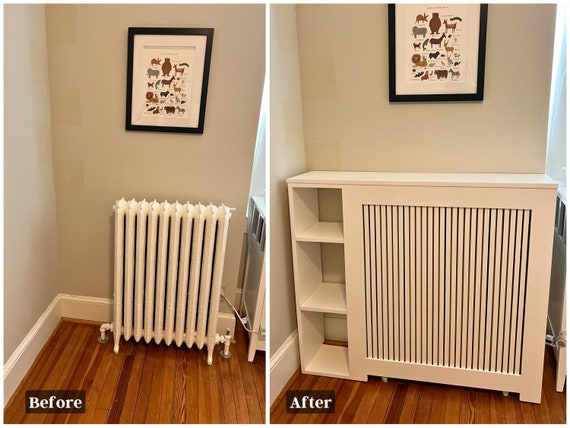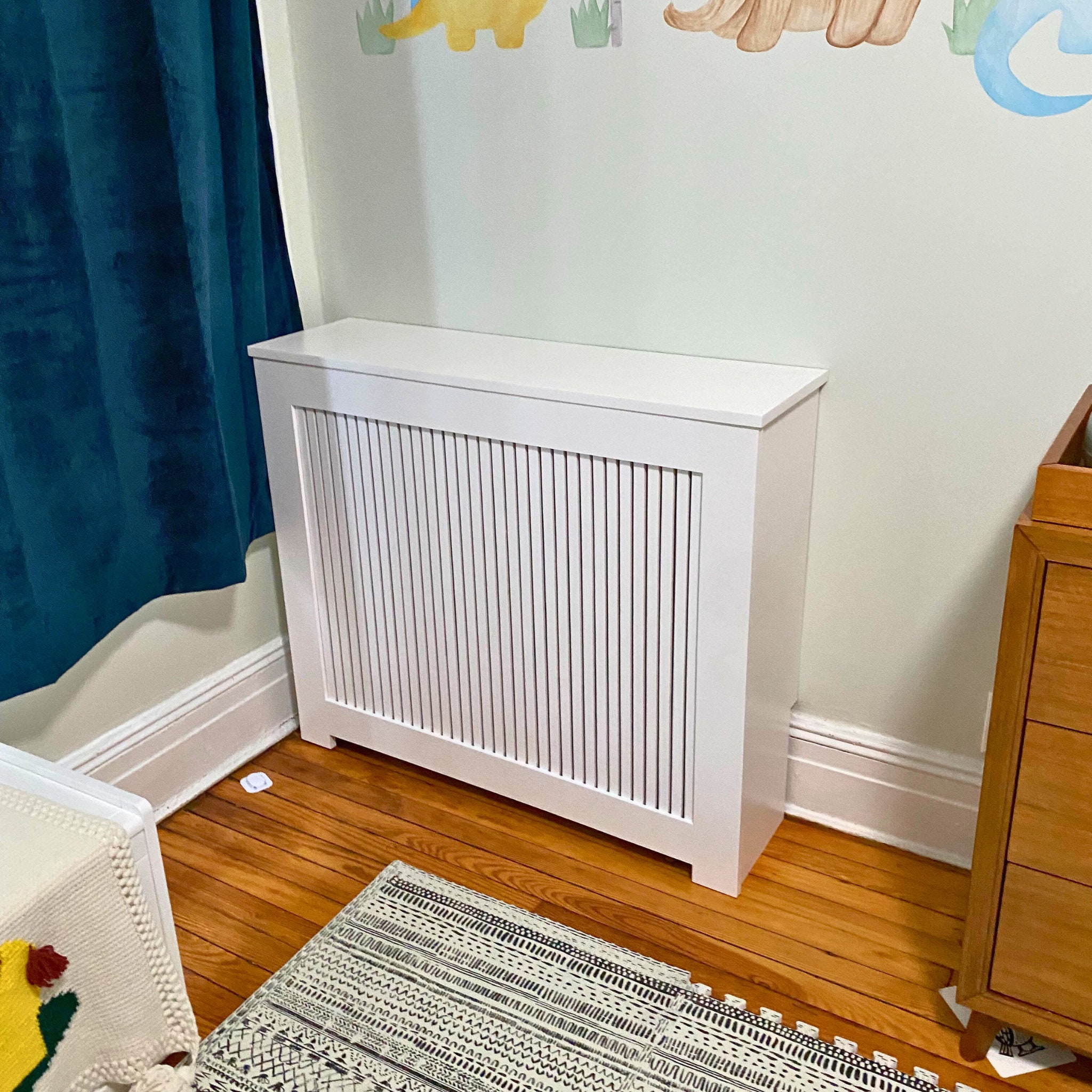The 4-Minute Rule for Modern Radiator Covers
The 4-Minute Rule for Modern Radiator Covers
Blog Article
Modern Radiator Covers - Truths
Table of ContentsAbout Modern Radiator CoversThe smart Trick of Modern Radiator Covers That Nobody is DiscussingAll About Modern Radiator CoversHow Modern Radiator Covers can Save You Time, Stress, and Money.See This Report on Modern Radiator Covers
For home owners that believe their radiators are eyesores, a radiator cover is an excellent way to conceal them. However, do radiator covers block the warmth? Covering your radiator should decrease its capability to produce warmth. Answering the above question relies on multiple factors related to your radiator. For those seeking a quick response: yes, a radiator cover can block heat, but only if poorly designed.The relationship in between radiator covers and warm distribution is much more nuanced than numerous could anticipate. Prior to talking about radiator covers, let's recognize just how the heating device functions. Your home's radiator works by transferring warmth from warm water, or heavy steam, to the location around it by means of the principles of convection and radiation.
When warm water circulates through it, the metal surface area soaks up the heat. When this heated fluid is circulated via your system right into the radiator, its metal surface absorbs the warmth from the warm water. As the surrounding air warms, it becomes much less dense and rises, developing a convection present that distributes warm air throughout the area.
Modern Radiator Covers Fundamentals Explained
There are techniques to improve this convection existing and make your radiator extra effective. These improvements include: Positioning your radiator under a window counteracts cold air going into the room and enhances warm flow. Modern radiators have convectors (fins or panels) that increase the area, enhancing heat transfer.: Positioning an aluminum foil sheet or panel behind the radiator prevents heat loss into the wall and routes extra heat right into the area.
Radiation additionally does not require any medium to move heat, which is exactly how the sun can warm your face. While this procedure does add to heat, its impact on a radiator's effectiveness is minimal contrasted to convection.

With radiator covers giving safety and security and peace of mind, it is perhaps the most vital reason to install one in the home. A well-designed radiator cover can develop extra rack room.
Some Known Facts About Modern Radiator Covers.
An additional advantage is sound reduction, as radiator covers can assist moisten the noises from older home heating units. As stated, radiators can be an eyesore. With the best radiator cover, you can hide unsightly radiators Bonuses and allow them to mix right into the area's visual. Currently that we understand why home owners would certainly mount a radiator cover, just how can they influence warmth output? When it pertains to radiator covers impacting warm outcome, there are a number of elements to consider, that include the following: The products utilized to develop a radiator cover matter.
Other products, like timber, warmth insulation, and textiles, will soak up and lower your radiator's heat result. Enjoying this blog? Show to your friends A radiator cover need to have big adequate slats or openings to enable proper air flow and maintain reliable heating. Strong covers without air movement channels catch warmed air inside, decreasing the effectiveness of convection currents.

Getting The Modern Radiator Covers To Work
An inadequately designed cover can block airflow, increase power expenses, and decrease overall warmth. For those that have actually just realised that a new radiator is the response, we can aid! For some house owners reviewing this article, it may have struck you that the issue with your radiator isn't its cover but the device itself.
For more details, you can speak to one of our professional specialists.
(https://businesslistingplus.com/profile/mradiatorc01/)Radiator covers can be a remarkable addition to your home decor, and can be a great way of hiding an awful radiator, as well as including useful storage, yet do they supply any kind of sensible advantages? Radiator covers are made to encapsulate radiators, offering both a practical purpose and an ornamental one.
They also include a precaution to your home, specifically with kids or animals, as they protect against unexpected contact with the hot surface of the radiator. You might think that a radiator cover will certainly be a great means to hide an old and ugly radiator. In fact, a good, well constructed radiator cover will cost the exact same as a brand-new radiator.
Getting The Modern Radiator Covers To Work
To ensure your radiator cover does not obstruct warm, it needs to have vents or ports that enable the warmth to escape. An air void in between the radiator and the cover is additionally essential for appropriate heat blood circulation. Some radiator covers also included reflective support, which can aid disperse warmth extra efficiently.
Shielded Metal Cover: The Cozy's cover is lined with high-efficiency insulation created to keep and save steam warm efficiently. This reduces the frequency and strength of heating cycles, permitting your radiator to operate extra efficiently.
Lowered Carbon Footprint: By enhancing fuel use, the Cozy aids reduce your carbon exhausts, adding to a cleaner environment. The Comfy smart radiator cover is an economically valuable financial investment for anybody looking to save on heating expenses and decrease energy waste.
Report this page